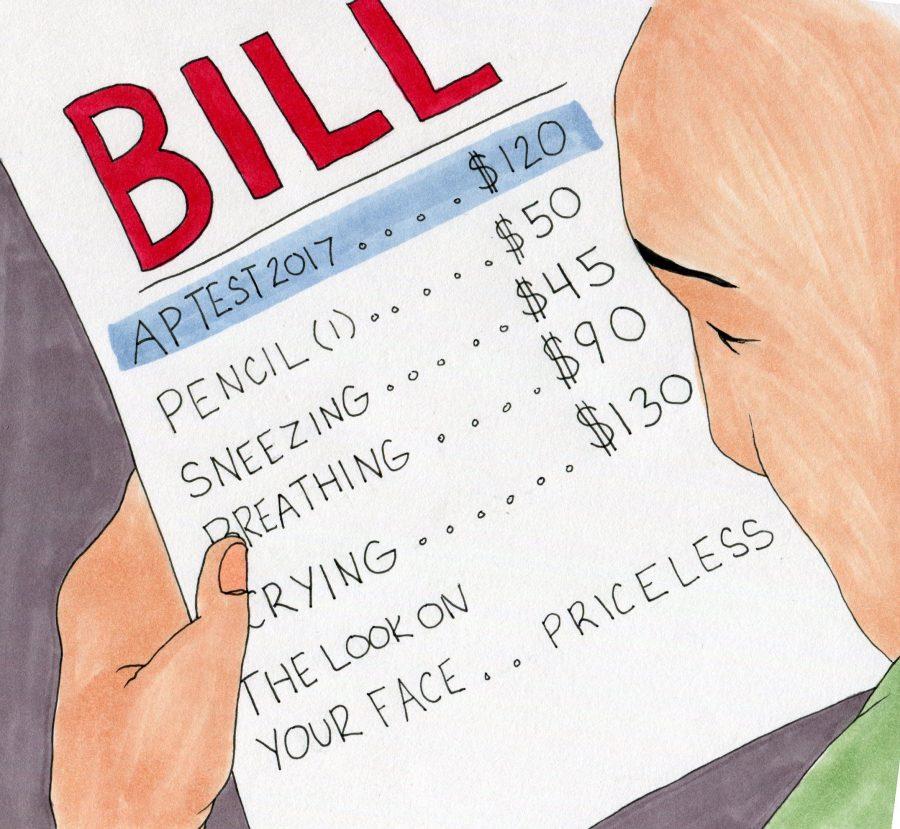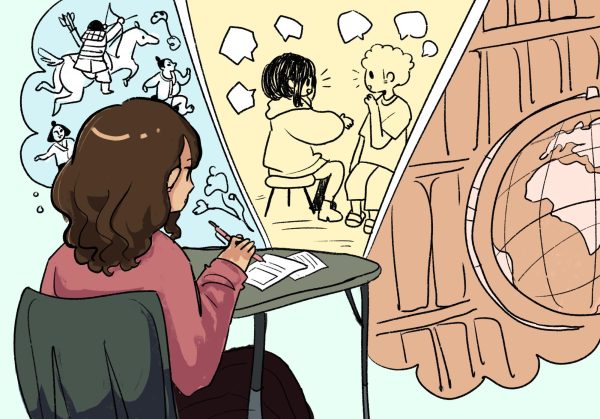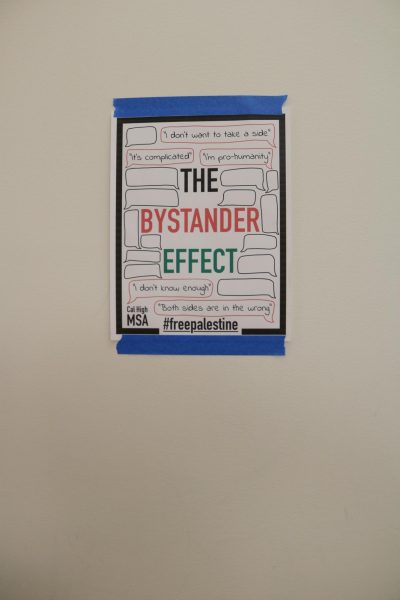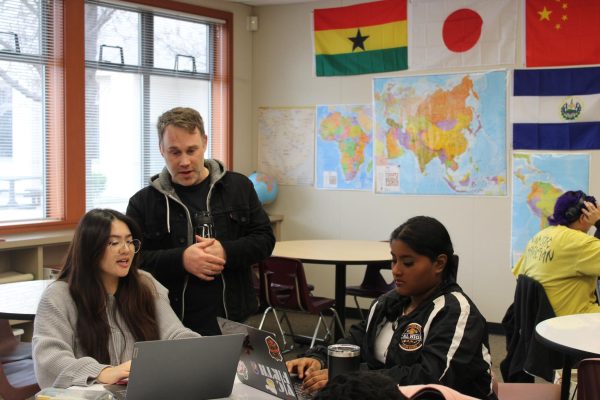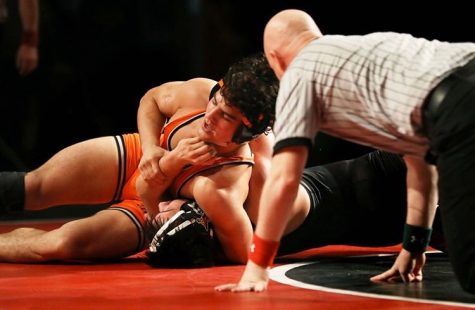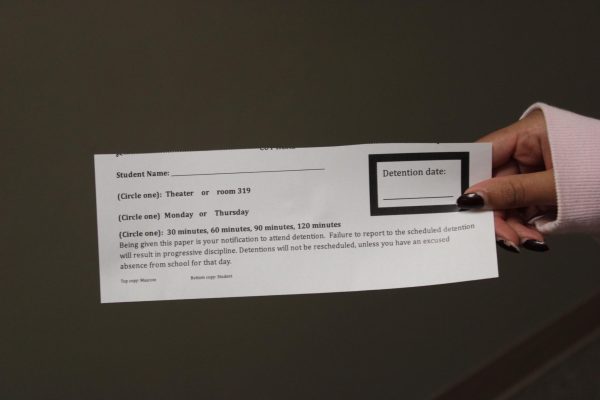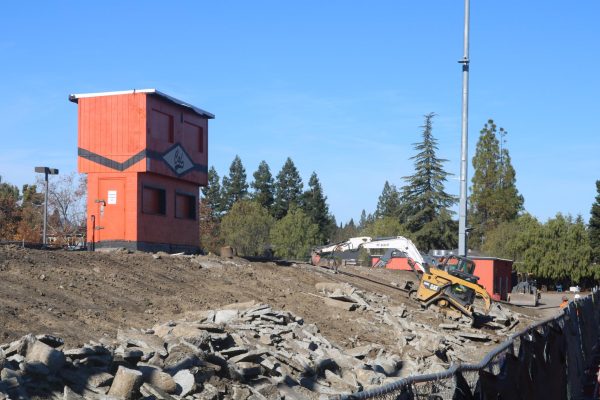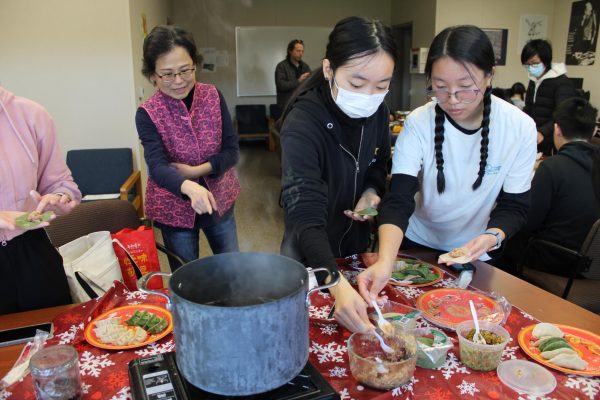AP tests see a price hike this year
District may make uniform test prices by next year
Increasing test prices are causing many students at Cal High to wonder how their money is actually being used. Schools throughout the district have varying prices that students pay to take their AP tests, but that could change next year.
Everyone knows what time of the year it is when the 5 Steps to a 5, Princeton Review, and Crash Course books come out.
That’s right, it’s AP test time.
The pressure not only to pass but to get a 5 starts to emanate not only from parents with high expectations but from the students themselves.
The whole process is overwhelming enough without the added pressure of the expensive test prices. But this year the pressure to perform well is higher than ever as the cost has increased, not so much by the College Board’s doing but by the school’s.
Last May, Cal High charged $110 per AP test. This year, the price has risen to $120, even though the College Board has only raised its price from $92 to $93.
“My bank account is crying,” said junior Christine Lou, who is planning on taking six AP tests this May. “It’s not that big of a difference considering that regardless of the price of the test, we all still have to pay for it. But it leaves me broke and I pay $800 to get 1’s. I hate the College Board.”
Lou was among many students who were surprised to find out the test prices have been increased by the school, not the College Board.
“It’s unfair to students who want to succeed,” she said.
Others pointed out that the $10 increase has a negative impact on students who push themselves to take more AP classes.
“The main question is why. It doesn’t make any sense,” said senior Ryan Higgins, who is taking seven AP Tests at a total cost of $840. “The price hike is ridiculous because it prevents students from wanting to take the test in the first place.”
Added junior Max Fallejo, “Wow! If they want students to take the test, you would think that administration would encourage it by lowering the price, not raising it.”
Though the cost fluctuates between all the schools in the district, with Dougherty Valley charging the most at $125, it looks like an end to this is in sight.
Superintendent Rick Schmitt said during a press conference with The Californian on March 21 that next year the district is going to try to make all the costs uniform by having every student taking an AP test take it in the same place.
Ideally this would be somewhere like the Pleasanton Fairgrounds, where widespread space is available.
“It is a massive undertaking,” said Schmitt. “The goal is to have an established set price and meybe do it districtwide so you are sitting with studenst districtwide.”
The district is in the early stages of planning this and it is not known when uniform prcies will be implemented. Schmitt is optimsistic that could as soon as next school year.
When Schmitt was working for San Dieguito Union High School District he said the district regulated both AP test pricing and the testing itself, renting out San Diego’s massive Del Mar Fairgrounds for students to take their tests.
He was surprised to learn about how the district handles AP testing.
“I don’t know why they do it that way here,” Schmitt said.
Assistant principal Crystal Lopez said Cal decided to charge an additional $10 this year to cover proctoring, administration, workshops and training conferences to support teachers, to pay for online resources for textbooks, and to be aligned with other schools in the district.
The school’s financial activity report for last year’s AP revenue expenditures indicated some of the $13,925 carryover went to teacher certifications, workbooks, computers, and general supplies.
Nearly $3,200 went to general supplies ranging from AP Spanish books to printers, while $5,351 went to non-capitalized equipment, mostly consisting of Apple Computers for AP classes, according to the financial report provided by bookkeeper Ann Weidinger.
The funds also went to certifications and other professional services that covered travel expenses for AP teacher conferences and workshops.
As far as keeping Cal’s AP test prices aligned with other schools in the district, Lopez said the school is trying to make it equitable across all schools in the district.
“The reasoning for that is that it’s not fair to make a student on one side of town pay more than a student on the other side of town for the same test,” she said.
While the cost of taking an AP test at San Ramon Valley High was $110 last year and $120 this year, the same as Cal, the school has less students to accommodate.
San Ramon Valley bookkeeper Michelle Bellamy said the school generated about $120,000 in revenue from AP tests, compared to Cal’s $150,000.
Monte Vista High School’s charge per test is not increasing this year and will remain at $110. Assistant Principal Kenny Kahn said that unlike other schools in the district, Monte Vista rearranges teachers and holds AP tests in classrooms, saving the expenses of renting out tables, chairs and facilities.
Dougherty Valley assistant Principal Kim Vaina said the school has charged $125 for the last three years. She said Dougherty’s numbers are very different and because of that the school have to charge more for proctoring, tables, chairs, entire facilities, and custodial services.
Dougherty’s auxilary gym can hold approximately 250 students and the Studio Room will hold 90, but even that is not enough to support every student for any one test as more than 400 students are enrolled in AP Psychology alone.
The school has been forced to rent the Studio Room, which is on campus but is owned by the city, Vaina said.
At Cal, AP tests are traditionally taken in the Event Center and library.
The Event Center hosts tests taken by larger classes, such as AP European History, Psychology, and English Language and Compsition.
The library often hosts the tests smaller classes, such as AP Music Theory, Chinese, and French.
Lopez said the format of many of the AP tests have changed in recent years and teachers attend College Board trainings that cost between $300 and $500 to help them adjust to the change in curriculum.
“Teachers are not required to go to these, but they are highly recommended,” said Lopez.
Though all the surplus money from the AP tests was put into the school’s general fund, where money is not earmarked for certain purposes, both Lopez and Weidinger said all of the AP money was put back into those programs.
The number of AP tests administered per year at Cal has risen steadily over the last several years by about 100 to 150 tests. In 2015, there were 1,267 total tests administered, compared to 1,390 administered last year.
This year, with the addition of one section of AP European History, one section of AP United States History, and three new sections of AP Computer Science Principles, the same increase in the number of tests administered is expected.
“College Board raised their price and our testing has grown, so we have to pay more proctors to cover administration of the test,” said Lopez. “Unfortunately we had to raise it.”
The school charged an additional $18 to the College Board’s $92 last year and this year they will be charging an additional $27 to the College Board’s $93.
The total fee the school is charging is increasing by 50 percent this year even though testing is still growing steadily.
Last year the total cost of proctoring was $10,231. Lopez said the amount the proctors get paid is negotiated in contracts with the district. Proctors are paid hourly and a little extra as they work from 7:30 a.m. to 5 p.m. The school picks the proctors, all of whom are either retired or substitute teachers.
The fact that the district is the only one in California ever to be put on the College Board’s honor roll six years in a row shows the prevalence of AP tests locally.
The honor roll is given to district that maintain a high pass rate. Cal has maintained a pass rate above 80 percent for all tests taken the past two years.
The district must meet certain diversity standards in addition to pass rate standards in order to be placed on the honor roll.
In a post on its website, the district credited this achievement to its commitment to open access and making AP classes an achievable goal for all students who want to challenge themselves.
Financial assistance is available to students who cannot afford the cost of tests.
“I have never, over the course of my four years, had a student unable to take a test or tests due to financial constraints,” Vaiana wrote in an email.
